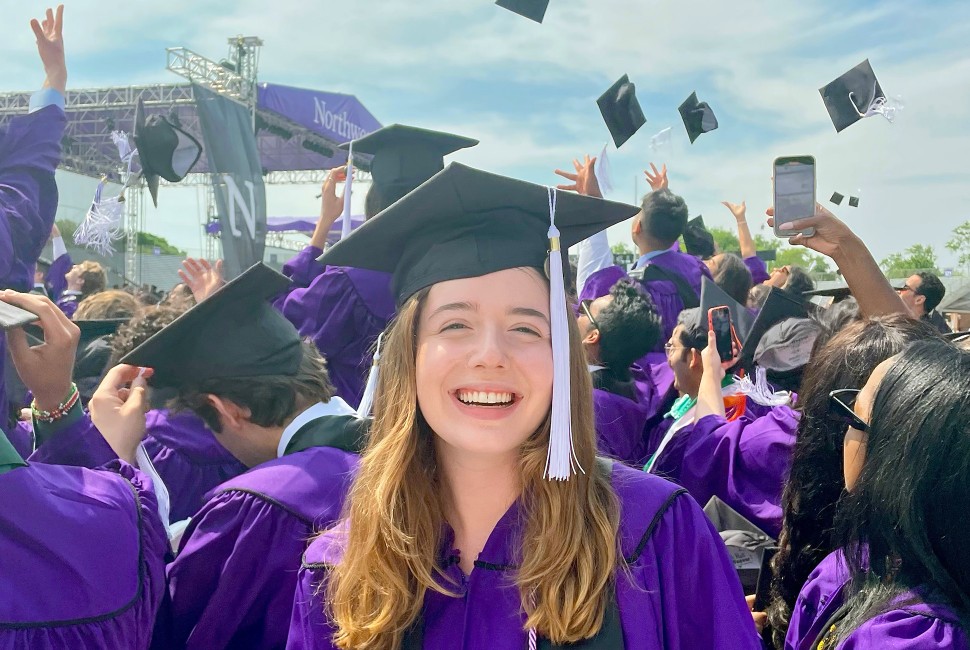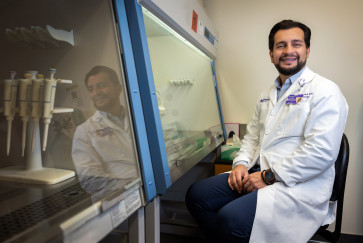I’m 17 years old. Our AP Psychology final project is to design an experiment, collect data and write up the results. My teacher suggests that our group, fascinated by the concept of false memories, reach out to memory researcher Elizabeth Loftus for advice. I email her, and to my surprise, she responds. When I send her a thank you note with our results, she reads our report and congratulates us. I’m astonished that such an established researcher would take the time to review our work and respond.
So begins my unrelenting dream to become a scientist — and mentor.
But today, shrinking federal budgets leave scientists scrambling to sustain their research and staff. In turn, scientists have less time for public education and mentorship.
I’m 18 years old. I’m starting at Northwestern in the fall and majoring in psychology. A friend’s mom, an addiction counselor, recommends I read “Unbroken Brain” by Maia Szalavitz. The book highlights racial injustice in the “War on Drugs” and how punitive responses to addiction harm lives. This resonates with my experiences growing up, when I witnessed firsthand how punitive systems often caused more harm than healing. I’m driven toward a career in addiction research, where I hope to help kids like me, my friends and our families.
Recent reductions in funding make it harder to conduct research that informs compassionate and equitable treatments. As funding dwindles, people will be less likely to encounter research that reflects their experience and inspires them to join the movement to challenge outdated, harmful approaches to addiction.
Science has brought meaning to my struggles and has saved my life in more ways than one.”
I’m 20 years old, a sophomore at Northwestern. The dorms are closing because of the COVID-19 pandemic. I have no choice but to return home. I hope things will be different, but I know better. Within 10 weeks, my life is in danger. Shelters are closed — I have nowhere to go and five courses to complete. In the nick of time, I receive a Weinberg College summer research grant that provides me the funding I need. I pack up my belongings, rent a car, drive 13 hours back to college (attending calculus class from the highway via Zoom) and settle into the dining room of an acquaintance until I land on my feet.
For the next two years, I practically live in Professor Jennifer Tackett’s Personality Across Development lab — by choice. There, under the mentorship of Tackett and then-graduate student Cassie Brandes, I complete two independent research projects, author an honors thesis, present several research posters and coordinate a multisite collaboration to establish a statewide twin project.
Brandes spends a remarkable amount of time mentoring me, and whenever I thank her, she maintains that she is only paying forward the support she received as an undergraduate. We bond over our shared interests in quantitative methods, and she plays an integral role in my development as a math nerd. She encourages me to take linear algebra, which ends up being my favorite college class. She challenges me with opportunities to learn about advanced statistical models she’s using in her research and inspires me to pick up a data science minor. Brandes is exceptionally patient with me as I navigate a difficult time in my life, and she always looks out for my best interests.
Just as Brandes is my blueprint for the kind of graduate student researcher I want to be, Tackett is my blueprint for the kind of lab director I aspire to be. In addition to giving vital feedback on my independent research and honors thesis projects, Tackett provides a sense of community and home at a time when I’m isolated and facing housing instability. From inviting us all over for the holidays to providing opportunities for undergraduates to take on leadership positions and lead independent research projects, she always makes sure that undergraduate research assistants feel valued and receive quality training.
When it comes time for me to apply to graduate school, the support of Brandes and Tackett are integral to my success. It is because of the Weinberg summer research grant program and my mentors that I’m here today writing this essay. Presently, universities, including mine, face federal funding freezes and terminations that disproportionately harm vulnerable groups. The endowments of universities and salaries of professors are not all that is at stake — the communities these research projects help and the students whose livelihoods depend on funding have the most to lose.
Today, I'm 25 years old. I've published nine peer-reviewed research papers on substance use and substance use disorders, but my future in the field has never been more precarious. Science has taught me integrity, patience and the power of imperfect progress. Science has brought meaning to my struggles and has saved my life in more ways than one. Science is not just something I do. It’s a core part of who I am. If science is taken from me, an important piece of me will be gone.
This is why I’ll never stop fighting for science and why I encourage you to fight alongside me. We have more to lose than funding. Kids today are at risk of missing scientific experiences that shape who they are, create a sense of belonging, make meaning out of pain and show them the magic of creating knowledge that helps others.
Felicia Tuchman ’22 holds a bachelor’s degree in psychology from the Weinberg College of Arts and Sciences. A version of this article originally appeared on July 20, 2025, in the Albuquerque Journal.


